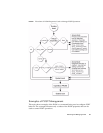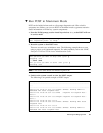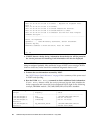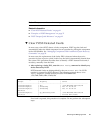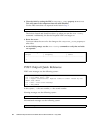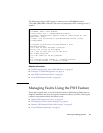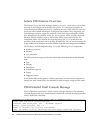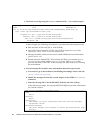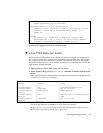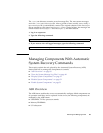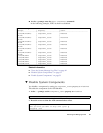
44 SPARC Enterprise T5120 and T5220 Servers Service Manual • July 2009
Solaris PSH Feature Overview
The Solaris OS uses the Fault Manager daemon, fmd(1M), which starts at boot time
and runs in the background to monitor the system. If a component generates an
error, the daemon handles the error by correlating the error with data from previous
errors and other related information to diagnose the problem. Once diagnosed, the
Fault Manager daemon assigns the problem a Universal Unique Identifier (UUID)
that distinguishes the problem across any set of systems. When possible, the Fault
Manager daemon initiates steps to self-heal the failed component and take the
component offline. The daemon also logs the fault to the syslogd daemon and
provides a fault notification with a message ID (MSGID). You can use the message ID
to get additional information about the problem from the knowledge article database.
The Predictive Self-Healing technology covers the following server components:
■ Multicore processor
■ Memory
■ I/O subsystem
The PSH console message provides the following information about each detected
fault:
■ Type
■ Severity
■ Description
■ Automated response
■ Impact
■ Suggested action
If the Solaris PSH facility detects a faulty component, use the fmdump command to
identify the fault. Faulty FRUs are identified in fault messages using the FRU name.
PSH-Detected Fault Console Message
When a PSH fault is detected, a Solaris console message displayed. The following
example illustrates the type of information contained in a console message generated
when a PSH fault is detected.
SUNW-MSG-ID: SUN4V-8000-DX, TYPE: Fault, VER: 1, SEVERITY: Minor
EVENT-TIME: Wed Sep 14 10:09:46 EDT 2005
PLATFORM: SUNW,system_name, CSN: -, HOSTNAME: wgs48-37
SOURCE: cpumem-diagnosis, REV: 1.5
EVENT-ID: f92e9fbe-735e-c218-cf87-9e1720a28004
DESC: The number of errors associated with this memory module has exceeded




